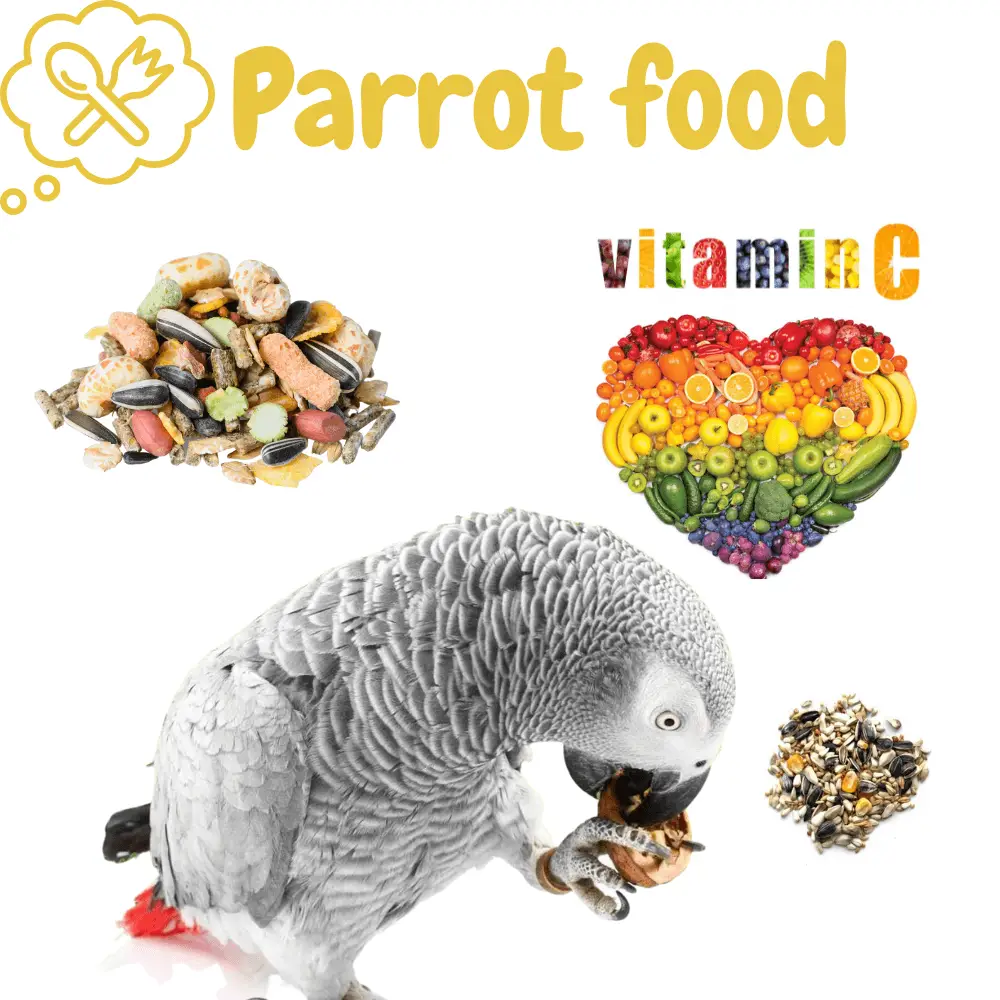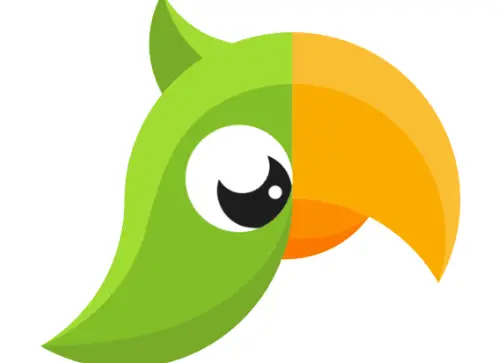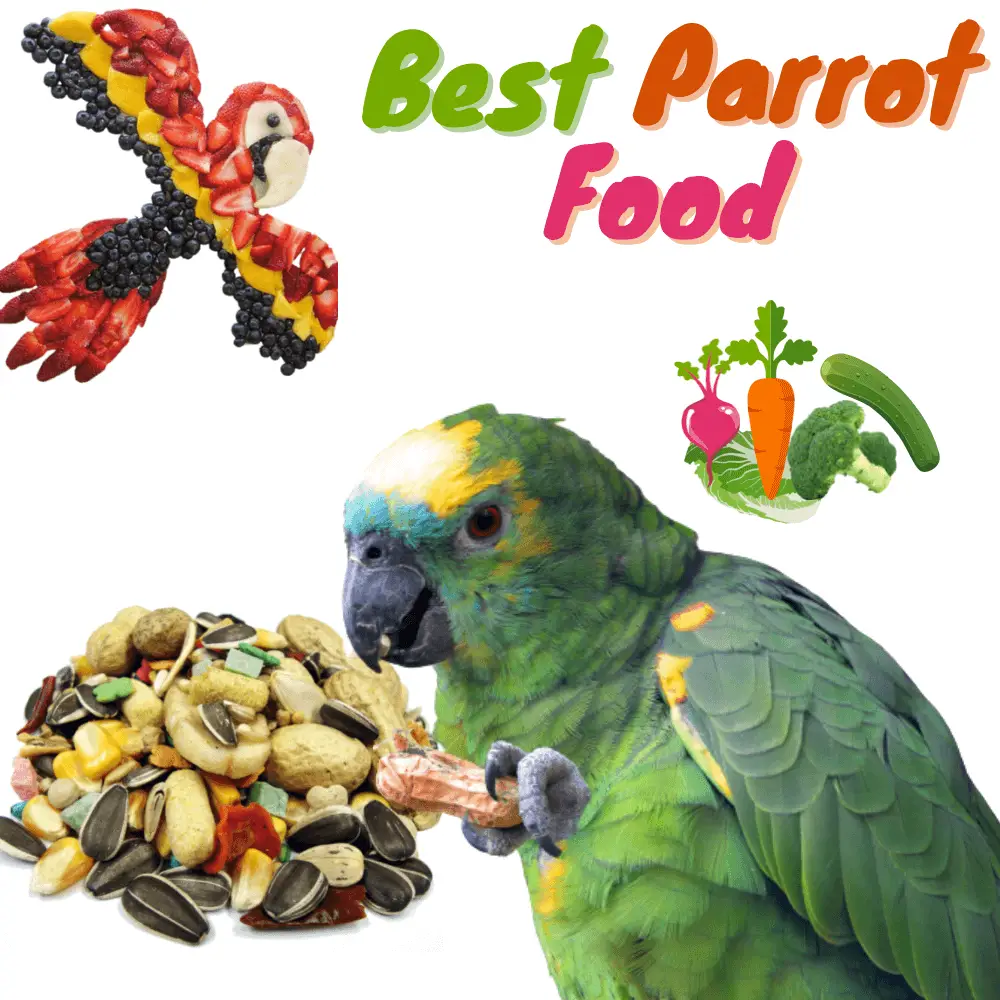- Food requirements for pet birds
- The different types of food that make up the pet bird diet
- Foods not to give to your pet bird
The species, age, state of health, or even the season are among the factors on which the type of food to be given to your pet bird depends.
However, there are common basic principles to know and apply. Here are some tips for feeding your parrot.
Parrot diet
Parrot feeding: A bird, whatever it is, needs varied and complete food intake. Its nutritional needs include vitamins, minerals, fats, carbohydrates, proteins, as well as fiber.
In the wild, the bird knows how to draw on the different resources that nature puts at its disposal to ensure all these nutrients.
Otherwise, it migrates and goes to look for them elsewhere. But life in a cage is completely different and implies a sedentary lifestyle. It is therefore up to the master to ensure that the bird’s diet is balanced.
The diet also depends on the specifics of each species. Some birds are granivores (they feed on seeds and cereals) and/or frugivores (they feed on fruits). Others also eat small insects and foods of animal origin, such as eggs.
Best parrot food

Parrot feeding
Several types of food may be present in the daily rations of the pet bird.
Seeds: ready-to-use mixtures are commercially available. They include varieties such as niger or millet. Sprouted seeds are also to be given to birds.
Nuts: in general, it is better to reserve them for larger birds, because of their high lipid contents.
Fruits and vegetables: raw or cooked, they supplement the intake by providing vitamins and minerals. Cooked legumes and herbs too.
Breeding food: pet food can be prepared at home. It is made from the dry mash, bread crumbs, rusks, brewer’s yeast, niger seed, vitamins (supplements) powder, omega 3/6 capsules, cooked and washed rapeseeds, egg (for the shell), and a small amount of honey.
The first step is to mix the dry mash and little breadcrumbs, then add the brewer’s yeast, the seeds of niger, the egg, and the honey until you get a homogeneous pasty texture.
In a separate container, pour ¾ water and ¼ crackers and mix well, before adding to the mash. Each time, only the quantity necessary for a meal is taken from this preparation, the rest being kept in the freezer.
What is given to birds should be supplemented with vitamins, minerals, omega, and rapeseed.
Water: it must be renewed every day to stay fresh and clean. The drinkers are also to be cleaned daily.
SOURCE: African Grey Parrot Pet
Toxic food for parrots
Certain foods should be avoided because they are dangerous for pet birds. Here is a non-exhaustive list:
- Mushrooms
- Lawyer
- Eggplant
- Raw potato
- Rhubarb
- Chocolate
- Caffeine
- Fruit seeds and pits
- Most indoor plants
Read also:

